The books for Literature and War Readalong 2011 and 2012 were following the different wars in chronological order. This year, 2013, we focused on different countries and wars we hadn’t covered so far. Next year will be about genre and WWI.
I was afraid a whole year dedicated to WWI books would be too much, especially since a lot of blogs run events for the Centenary, that’s why I decided to start with three novels on the American Civil War, one of which was part of 2011’s readalong, but had to be postponed. After that it’s all about WWI and to make it more interesting, I’ve included different genres: Memoir, letters, historical fiction, literary fiction, a children’s book and one fantasy novel. I hope there will be something for everyone among these titles.
January, Friday 31
The Black Flower by Howard Bahr (US 2000), American Civil War, Novel, 272 pages
The Black Flower is the gripping story of a young Confederate rifleman from Mississippi named Bushrod Carter, who serves in General John Bell Hood’s Army of Tennessee during the Civil War battle that takes place in Franklin, Tennessee, in November 1864. Written with reverent attention to historical accuracy, the book vividly documents the fear, suffering, and intense friendships that are all present on the eve of the battle and during its aftermath. When Bushrod is wounded in the Confederate charge, he is taken to a makeshift hospital where he comes under the care of Anna, who has already lost two potential romances to battle. Bushrod and Anna’s poignant attempt to forge a bond of common humanity in the midst of the pathos and horror of battle serves as a powerful reminder that the war that divided America will not vanish quietly into the page of history.
February, Friday 28
The Killer Angels by Michael Shaara (US 1974), American Civil War, Novel, 355 pages
The late Shaara’s Pulitzer Prize-winning novel (1974) concerns the battle of Gettysburg and was the basis for the 1993 film Gettysburg. The events immediately before and during the battle are seen through the eyes of Confederate Generals Lee, Longstreet, and Armistead and Federal General Buford, Colonel Joshua L. Chamberlain, and a host of others. The author’s ability to convey the thoughts of men in war as well as their confusion-the so-called “fog of battle”-is outstanding. This unabridged version is read clearly by award-winning actor George Hearn, who gives each character a different voice and effectively conveys their personalities; chapters and beginnings and ends of sides are announced. Music from the movie version adds to the drama. All this comes in a beautiful package with a battle map. Recommended for public libraries not owning previous editions from Recorded Books and Blackstone Audio (Audio Reviews, LJ 2/1/92 and LJ 2/1/93, respectively).
March, Monday 31
March by Geraldine Brooks (Australia 2005) American Civil War, Novel, 304 pages
Brooks’s luminous second novel, after 2001’s acclaimed Year of Wonders, imagines the Civil War experiences of Mr. March, the absent father in Louisa May Alcott’s Little Women. An idealistic Concord cleric, March becomes a Union chaplain and later finds himself assigned to be a teacher on a cotton plantation that employs freed slaves, or “contraband.” His narrative begins with cheerful letters home, but March gradually reveals to the reader what he does not to his family: the cruelty and racism of Northern and Southern soldiers, the violence and suffering he is powerless to prevent and his reunion with Grace, a beautiful, educated slave whom he met years earlier as a Connecticut peddler to the plantations. In between, we learn of March’s earlier life: his whirlwind courtship of quick-tempered Marmee, his friendship with Emerson and Thoreau and the surprising cause of his family’s genteel poverty. When a Confederate attack on the contraband farm lands March in a Washington hospital, sick with fever and guilt, the first-person narrative switches to Marmee, who describes a different version of the years past and an agonized reaction to the truth she uncovers about her husband’s life. Brooks, who based the character of March on Alcott’s transcendentalist father, Bronson, relies heavily on primary sources for both the Concord and wartime scenes; her characters speak with a convincing 19th-century formality, yet the narrative is always accessible. Through the shattered dreamer March, the passion and rage of Marmee and a host of achingly human minor characters, Brooks’s affecting, beautifully written novel drives home the intimate horrors and ironies of the Civil War and the difficulty of living honestly with the knowledge of human suffering.
April, Monday 28
Toby’s Room by Pat Barker (UK 2013), WWI, Novel, 272 pages
Pat Barker returns to the First World War in Toby’s Room, a dark, compelling novel of human desire, wartime horror and the power of friendship.
When Toby is reported ‘Missing, Believed Killed’, another secret casts a lengthening shadow over Elinor’s world: how exactly did Toby die – and why? Elinor determines to uncover the truth. Only then can she finally close the door to Toby’s room. Moving from the Slade School of Art to Queen Mary’s Hospital, where surgery and art intersect in the rebuilding of the shattered faces of the wounded, Toby’s Room is a riveting drama of identity, damage, intimacy and loss. Toby’s Room is Pat Barker’s most powerful novel yet.
May, Friday 30
Private Peaceful by Michael Morpurgo (UK 2003) WWI, Children’s Book, 192 pages
Heroism or cowardice? A stunning story of the First World War from a master storyteller.
Told in the voice of a young soldier, the story follows 24 hours in his life at the front during WW1, and captures his memories as he looks back over his life. Full of stunningly researched detail and engrossing atmosphere, the book leads to a dramatic and moving conclusion.
Both a love story and a deeply moving account of the horrors of the First World War, this book will reach everyone from 9 to 90.
June, Friday 27
Fear – La Peur by Gabriel Chevallier (France 1930) WWI, Classic, Novel, 320 pages
It is 1915. Jean Dartemont is just a young man. He is not a rebel, but neither is he awed by authority and when he’s called up and given only the most rudimentary training, he refuses to follow his platoon. Instead, he is sent to Artois, where he experiences the relentless death and violence of the trenches. His reprieve finally comes when he is wounded, evacuated and hospitalised.
The nurses consider it their duty to stimulate the soldiers’ fighting spirit, and so ask Jean what he did at the front.
His reply?
‘I was afraid.’
First published in France in 1930, Fear is both graphic and clear-eyed in its depiction of the terrible experiences of soldiers during the First World War.
July, Monday 28
The Lie by Helen Dunmore (UK 2014) WWI, Novel, 304 pages
Set during and just after the First World War, The Lie is an enthralling, heart-wrenching novel of love, memory and devastating loss by one of the UK’s most acclaimed storytellers. Cornwall, 1920, early spring.
A young man stands on a headland, looking out to sea. He is back from the war, homeless and without family.
Behind him lie the mud, barbed-wire entanglements and terror of the trenches. Behind him is also the most intense relationship of his life.
Daniel has survived, but the horror and passion of the past seem more real than the quiet fields around him.
He is about to step into the unknown. But will he ever be able to escape the terrible, unforeseen consequences of a lie?
August, Friday 29
Undertones of War by Edmund Blunden (UK 1928) WWI, Memoir, 288 pages
In what is one of the finest autobiographies to come out of the First World War, the distinguished poet Edmund Blunden records his experiences as an infantry subaltern in France and Flanders. Blunden took part in the disastrous battles of the Somme, Ypres and Passchendaele, describing the latter as ‘murder, not only to the troops, but to their singing faiths and hopes’. In his compassionate yet unsentimental prose, he tells of the heroism and despair found among the officers. Blunden’s poems show how he found hope in the natural landscape; the only thing that survives the terrible betrayal enacted in the Flanders fields.
September, Monday 29
My Dear, I wanted to tell you by Louisa Young (UK 2011) WWI, Historical Fiction, 336 pages
A letter, two lovers, a terrible lie. In war, truth is only the first casualty. ‘Inspires the kind of devotion among its readers not seen since David Nicholls’ One Day’ The Times
While Riley Purefoy and Peter Locke fight for their country, their survival and their sanity in the trenches of Flanders, Nadine Waveney, Julia Locke and Rose Locke do what they can at home. Beautiful, obsessive Julia and gentle, eccentric Peter are married: each day Julia goes through rituals to prepare for her beloved husband’s return. Nadine and Riley, only eighteen when the war starts, and with problems of their own already, want above all to make promises – but how can they when the future is not in their hands? And Rose? Well, what did happen to the traditionally brought-up women who lost all hope of marriage, because all the young men were dead?
Moving between Ypres, London and Paris, My Dear I Wanted to Tell You is a deeply affecting, moving and brilliant novel of love and war, and how they affect those left behind as well as those who fight.
October, Friday 31
Phoenix and Ashes by Mercedes Lackey (US 2004) WWI, Fantasy, 468 pages
In this dark and atmospheric rendition of the Cinderella fairy tale, an intelligent young Englishwoman is made into a virtual slave by her evil stepmother. Her only hope of rescue comes in the shape of a scarred World War I pilot of noble blood, whose own powers over the elements are about to be needed more than ever.
“A dark tale full of the pain and devastation of war…and a couple of wounded protagonists worth routing for.”
November, Friday 28
Flight Witout End – Die Flucht ohne Ende by Joseph Roth (Austria 1927) WWI, Classic, 144 pages
Flight Without End, written in Paris, in 1927, is perhaps the most personal of Joseph Roth’s novels. Introduced by the author as the true account of his friend Franz Tunda it tells the story of a young ex-office of the Austro-Hungarian Army in the 1914- 1918 war, who makes his way back from captivity in Siberia and service with the Bolshevik army, only to find out that the old order, which has shaped him has crumbled and that there is no place for him in the new “European” culture that has taken its place. Everywhere – in his dealings with society, family, women – he finds himself an outsider, both attracted and repelled by the values of the old world, yet unable to accept the new ideologies.
December, Monday 29
Letters from a Lost Generation by Vera Brittain and Four Friends (UK) WWI, Letters, 448 pages
Nothing in the papers, not the most vivid and heart-rending descriptions, have made me realise war like your letters’ Vera Brittain to Roland Leighton, 17 April 1915.
This selection of letters, written between 1913 & 1918, between Vera Brittain and four young men – her fiance Roland Leighton, her brother Edward and their close friends Victor Richardson & Geoffrey Thurlow present a remarkable and profoundly moving portrait of five young people caught up in the cataclysm of total war.
Roland, ‘Monseigneur’, is the ‘leader’ & his letters most clearly trace the path leading from idealism to disillusionment. Edward, ‘ Immaculate of the Trenches’, was orderly & controlled, down even to his attire. Geoffrey, the ‘non-militarist at heart’ had not rushed to enlist but put aside his objections to the war for patriotism’s sake. Victor on the other hand, possessed a very sweet character and was known as ‘Father Confessor’. An important historical testimony telling a powerful story of idealism, disillusionment and personal tragedy.
I think the list is very different from the last years. The one or the other title like Mercedes Lackey’s book is a bit of gamble but I tried to make the list as diverse as possible.
I hope that many of you will join.











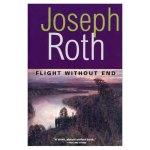

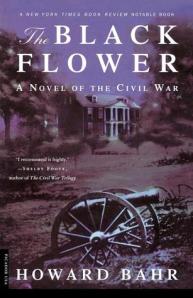
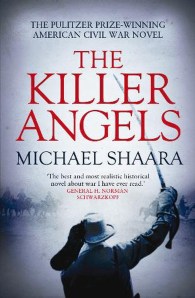
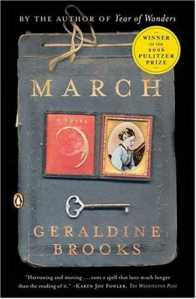
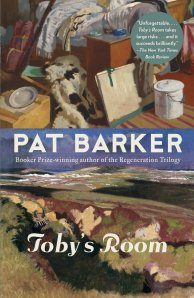
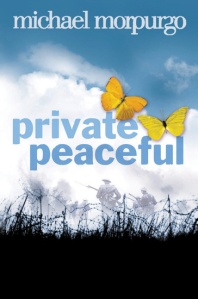
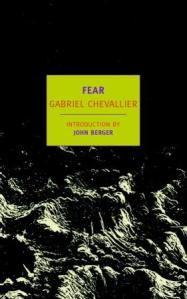
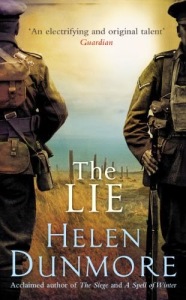
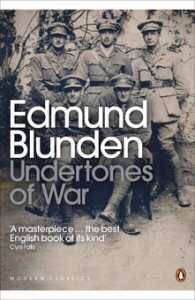
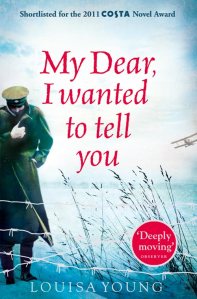
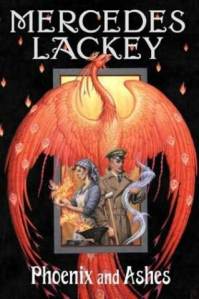
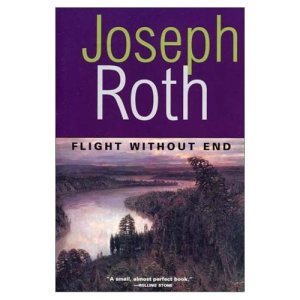
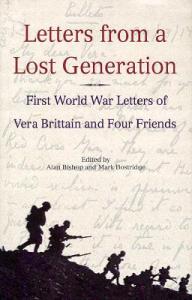
I agree with you about not going overboard with WW1 choices. By happy chance you’ve chosen a number of books which are firmly lodged in my ‘to-read’ pile several inches down so I shall get them out for 2014. When you said Civil War you meant the American one didn’t you – coughs? We did have one in England a couple of decades earlier and I’d recommend Maria McCann’s As Meat loves Salt if anyone wants to add to their reading pile.
It’s still very heavily focussing on WWI.
I’m looking forward to your thoughts on some of the books.
Oooops yes, American Civil War. I’ll add that immediately.
As Meat Loves Salt rings a bell. Thanks for the suggestion.
Some interesting choices there, Caroline. I just read a non fiction book that straddled the American civil war (I’ll be reviewing it soon), and the conditions described were horrendous. For the period, and group of men I read about, seems like half the men were dead or dying before they even got to the enemy territory while the generals were whooping it up with feasts and parties.
Thanks, Guy. Maybe you could join for Chevallier’s book. I’ll be interested to hear about the book you read. The American Civil War had some pretty gruesome battles.
I like your list and even if I don’t join formally in the read-along I hope to try some of them. May I respectfully suggest that you add Louisa May Alcott’s Hospital Sketches as an accompaniment to March. It is readily available in reprint, brief, and a first-hand account of this well-known author’s experiences as a nurse in a civil war hospital.
Thanks, I’m glad you like it.
And thank you so much for that suggestion. I’ll mention it when I do the intro post and have juts downloaded it for free on the kindle. that will make a terrific companion piece.
Wonderful list, Caroline! I am so excited! It was so wonderful to see Edmund Blunden’s ‘Undertones of War’. It is a book that I have wanted to read for ages. Now I have a reason to read it soon 🙂 I also love the descriptions of Pat Barker’s ‘Toby’s Room’, Gabriel Chevalier’s ‘Fear’ and Joseph Roth’s ‘Flight Without End’. I want to read all these books. I will definitely join you for the readalongs of ‘Undertones of War’ and ‘Flight Without End’. Looking forward to the start of next year’s readalong. Thanks for this wonderful post.
Forgot to mention one more thing. It was nice to see another Caroline commenting on your blog. I think this is the first time I am seeing that – comment by Caroline and reply also by Caroline 🙂
She’s been particiüating quite a few times in the readalong but you are right, I think she’s the only Caroline but me on my blog. 🙂
I might have missed her comments before. This is the first time I am noticing.
I often don’t manage to read the books Vishy or at least not at the same time as everyone else! I’ve only just started Alexander Baron’s There’s no Home but it is great having the readalong to introduce me to new books like The Yellow Birds.
I’m very glad that you will join for those books. It’s so much nicer when you can discuss a book like Undertones. I always meant to read more Joseph Roth, so that will be interesting too.
I’m keen on starting to read now too. 🙂
That Joseph Roth book looks so wonderful. I can’t wait to read it. Yes, it is tempting to get started right now 🙂
I really like him and look forwad to reading it too.
Oh, I am hoping to join in this year. I even have some of those books on my TBR pile, so that’s a start! Unfortunately, unless my library has it I can’t get the first book. But, otherwise, I am in!
It would be really great if you could join for a few of the others.
I’ve only heard great things about the first, maybe the library has it.
No luck at the library, but I can get it from Audible. I will just have to go with an audio. 🙂 I have new credits at the end of the month, so I will grab a copy then. My library only has an audio of the second book. I might have to just join in and do them all on audio.
That will be so interesting. I would love to hear how they are on audio. And I’m glad that you will join.
Well, I’ve just had a book cull and March went into the library donation bag. I suppose I’ll just have to borrow it back …. 😉
That’s too bad. I thought it should be quite good. I hope you can join for some of the others.
Pencilling in March, April, July and November.
I’m very glad to hear it. 🙂
Great list. I’m tempted by the Roth and the fantasy one (I’m curious)
Thanks, Emma.
I thought the fanatsy novel sounded interesting. Something different, right? It should be good a transportation read. 🙂
Great post, I have Vera Britten’s book on my list and hope to start it soon.
Thnaks, Claire. I think Brittain’s book shuld be very good. There’s another one, an autobiography maybe.
I hope you’ll join the discussion – altough – it’s far away.
What a great lineup, Caroline. I can’t join in, but will add many to my pile and look forward to your comments. Thanks for doing this.
Thanks Carole. I think the books are more varied and I remember from the first years that reading a few books one after the other focussing on one war is quite interesting.
Very impressive list. It looks to be a good combination. I agree that a little variety beyond WW I is a good thing. I will try to join for a couple of the books this year.
Thanks, Brian.
I’m very glad you’ll join for some of the books.
I’m so impressed that you have managed to compile a varied list – there must be so many war novels out there! Almost all the books are new to me. I’m not a great war story reader, but I always enjoy following the discussions you have!
Once you start looking . . . It’s overwhelming. I thought it was mainly WWII but there are so many WWI novels out there as well and not only because it’s the centenary.
Looks like a great list! Several are new to me, and I am happy to see some Civil War books included. I think there will be plenty of WWI book choices in the coming year and I am still hoping to read along with the LT Virago group (one book every other month), so it’s nice to have some variety there. I swear I own The Black Flower–have had it since it came out in paper (so many, many years!), but where it is on my shelves id beyond me. I will have to search it out over break or just order another copy. I’m happy to see the Pat Barker, the Helen Dunmore and the Louisa Young–all books (or authors) I wanted to read next year in any case. The Mercedes Lackey looks really interesting–completely new to me. I am still reading the Keilson (well, dragging it around with me–I need to settle down to it and just get through the last 100 pages. And I have the Ninh on my night stand. Have I mentioned how much I am looking forward to my break? 🙂
It wasn’t easy to compile the list and I chnaged it numerous times.
I thought variety is good but I wanted another for from this year.
Mercedes Lackey has a huge fan base and this Elemental Master’s series is quite interesting as she’s done a lot of research for the time period and always bases te story one a fairy tale, in this case Cinderella. Since she wites a lot, I hope the quality is Ok.
I’m looking forward to Baker, Dunmore and Young as well. Chevallier and Blunden will be challenging, I’m afraid.
I’m glad for another comment on the Keilson book by Leroy the other day. He called reading it “slogging through”.
I’ve not started Ninh but should so so.
I am looking forward to the Lackey actually–it sounds really good and for a moment I contemplated getting it now and reading it over the break….only I have too many books already I want to read on my break (that I will never manage). Okay, so I will admit the Keilson is not really gripping reading and (shh, hate to admit it) but slogging may not necessarily be too harsh a description. I always feel bad when I feel that way–I’ve had a dificult month and keep putting things down to my own mental state, but I can only seem to read a few pages at a time–I can never seem to find myself falling into the story like I would like with a novel (that is part of the problem–there is not much of a plot to become involved in). It’s going to be one of those books I will appreciate and be glad I read, but also glad that I only borrowed it from the library. I just hate to give up on it when I am passed the halfway mark and when I already have two other unfinished books from the readalong. I think you can’t get away from a few books on the subject matter being challenging!
I know how you feel. I really wanted to finish the Keilson but putting it aside was a relief. I’m not going to finish it ever I’m afraid.
I have the Lackey here, it just arrived a week ago. I don’t have all the books for next year yet but I wanted to read a few pages just to get a feel and now I’m tempted to read it right away. 🙂
It wouldn’t be right if all the books on WWI would be breezy. I think that even Barker and Young might have graphic elements.
As always I can hardly wait to read the next books – and have still not started Ninh.
I need to start on the Ninh, too. I might set the Keilson aside for a while (or maybe just try and read five pages a day until I finish rather than one big push–not sure which is better). Now that the next list is out I am all ready to begin the January book (and will be searching my shelves this weekend for it–which will be dangerous I suspect!). Reading the blurbs about the Ninh–it sounds very good–well received and reviewed. I will start it this weekend I think. I still have one more week (only five days of work!) to go before my break, but mentally I think I have already gone on vacation!
I never manage to read just a few pages per day, it drags it out too long.
The Ninh starts well and I really want to finish it this week, I don’t want to read it over Christmas.
The Black Flower is said to better than Cold Mountian. I’m very curious to see how it compares.
I’ve got the first few books all lined up and ready to go and the first one on my reading pile for 2014! I am in the mood to read a story from that era so the timing is perfect. I hope next year is better book-wise than this one has been! It became a big mess at the end and I will be clearing away most of the remaining books in the next day or so to get ready for a fresh start. There are two books, however, that I am close to finishing -so I hope to get in some really good reading time (finally?!) in the next two days.
I’m in the mood for that period as well. I haven’t read anything, with the exception of Cold Mountain, which I really loved.
I noticed that my unfinished book pile is higher than I thought. I don’t really read in parallel but I sometimes put aside longer books and forget about them. Not because they are bad, just because I’m greedy to strat something new. 🙂
No Japanese war now?
A samurai war could be a nice change 😉
I’m focussing on WWI mainly and I don’t know any Japanese novels written about WWI
But, yes, a Samurai book could have been something to include.
These are some great selections. I’ve only read the Louisa Young book, so I’m hoping I will have time to participate more next year. 🙂
I thought the liust might appeal to you.
I hope you will join the Louisa Young discussion anyway. I’ll make sure to add your post.
I’ll definitely join the discussion!
That’s great.
Some great books on the list and I love that you added a fantasy novel. Will head to the library soon and see if I can find any. The Killer Angels is a fantastic book.
Thanks, TBM.
I think it will be so interesting to see what a fantasy author does with WWI.
I’m so glad to hear you liked Killer Angels.
Here we go again. Looking forward to the ride. I am determined to make up for my poor performance from last year. I blame the library (and some obscure titles) for that, but I could have bought some of them, I suppose. Feel guilty about that. This list looks much better. It starts very strongly in my opinion which has me slightly worried that the WWI titles will not be able to match the first three. However, I do like WWI novels and you have chosen some good ones in the past. I find it ironic that a war that is blah when it comes to nonfiction seems to bring out the best in fiction. Why is that?
That’s an interesting observation. I have no clue, although it seems there are a few very good non-fiction books out there, I just assume they are not as popular as books on WWII. Maybe I’m wrong.
I’m glad to have you join and I’m really curious to read your recommendation.
I think this list is more accessible, which doesn’t harm. After the Keilson debacle in November im all for solid story telling. Btw – Are you reading the Ninh? I find it excellent but jumpy (regarding time). It’s interesting to compare it to The Things They Carried.
I am reading Ninh and I am thinking the same thing. You know my feelings about nonlinear. I also caught the similarity to O’Brien’s book.
I think the combat in WWI was so redundant that it did not make for compelling nonfiction, but the distinctive horrors of the war was fodder for great fiction. The opposite is basically true for WWII.
The scope was narrower in WWI. My problem with Ninh is that I’m not entirely sure what he is doing is really wanted or rather lack of craft. Harsh.
Pingback: 2014 Reading Challenges: War Through the Generations and More | Diary of an Eccentric